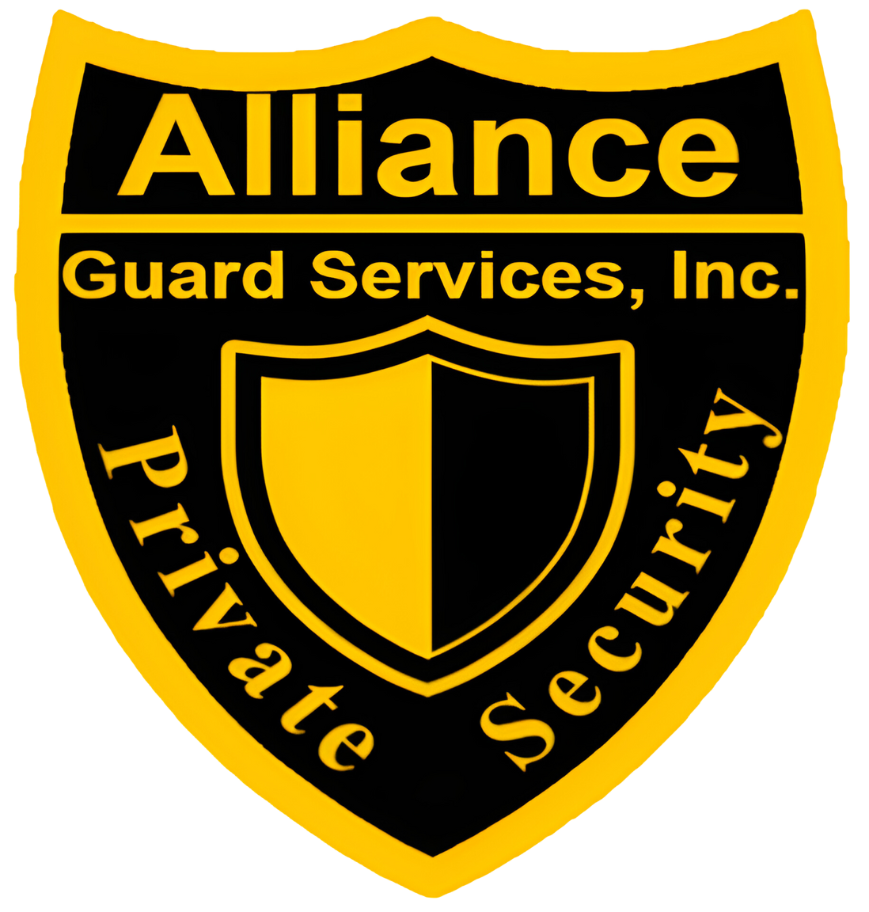Scope of Campus Security Authority
Importance of Campus Security
This section will highlight the significance of campus security in ensuring the safety and well-being of students, faculty, and staff within educational institutions. It will discuss the various security challenges faced by campuses, including threats of violence, theft, and other crimes, emphasizing the need for effective security measures to create a secure learning environment.
Overview of the Article’s Focus
Here, we’ll provide a brief summary of the article’s main focus, outlining the topics that will be covered in detail regarding campus security and the authority of campus security personnel. This overview will give readers a clear understanding of what to expect from the article and how it will address their questions and concerns related to campus security.
Introduction to Campus Security Authority
This part will introduce the concept of campus security authority, explaining the role and responsibilities of campus security personnel in maintaining safety and security on campus grounds. It will outline the legal basis and jurisdiction that govern campus security operations, setting the stage for further exploration of the authority of campus security personnel in the subsequent sections of the article.
Understanding Campus Security Authority
Definition and Scope of Campus Security Authority
This section will provide a clear definition of campus security authority, outlining the scope of authority granted to campus security personnel. It will define the responsibilities and duties encompassed within campus security authority, such as ensuring the safety of individuals on campus, enforcing campus rules and regulations, and responding to security incidents.
Legal Basis and Jurisdiction
Here, we’ll delve into the legal framework that governs campus security authority, discussing the laws, regulations, and policies that empower campus security personnel to carry out their duties. We’ll explore the jurisdictional boundaries within which campus security operates, including their authority on campus property and their collaboration with external law enforcement agencies.
Powers and Limitations of Campus Security Personnel
This part will examine the powers granted to campus security personnel in carrying out their responsibilities, such as the authority to detain individuals, issue citations, and make arrests within the confines of campus jurisdiction. Additionally, we’ll discuss the limitations placed on campus security personnel, including restrictions on the use of force and the necessity of upholding individuals’ rights and privacy.
Roles and Responsibilities of Campus Security Personnel
Ensuring Safety and Security on Campus Grounds
This section will detail the primary responsibility of campus security personnel, which is to maintain safety and security throughout the campus premises. It will cover activities such as conducting patrols, monitoring surveillance systems, and identifying potential security threats to ensure a safe environment for students, faculty, staff, and visitors.
Enforcing Campus Rules and Regulations
Here, we’ll discuss the role of campus security personnel in enforcing campus rules and regulations to maintain order and discipline within the campus community. This includes enforcing policies related to parking, access control, noise disturbances, and other conduct standards established by the institution.
Assisting with Emergency Response and Crisis Management
This part will highlight the crucial role of campus security personnel in emergency response and crisis management situations. They are often the first responders to incidents such as medical emergencies, fires, or acts of violence, and play a vital role in coordinating responses, evacuations, and communication efforts to ensure the safety of everyone on campus.
Providing Assistance and Support to Students, Faculty, and Staff
Finally, we’ll discuss how campus security personnel serve as a resource for the campus community by providing assistance, support, and guidance to students, faculty, and staff. They may assist with directions, escort services, vehicle assistance, or addressing concerns related to safety and security, fostering a sense of trust and collaboration within the campus environment.
Training and Preparation for Campus Security Personnel
Importance of Training and Education
In this section, we’ll emphasize the critical importance of training and education for campus security personnel. We’ll discuss how comprehensive training programs are essential for equipping security officers with the knowledge, skills, and competencies needed to effectively perform their duties and respond to various security challenges on campus.
Topics Covered in Campus Security Training Programs
Here, we’ll provide an overview of the topics typically covered in campus security training programs. This may include areas such as emergency response procedures, conflict resolution techniques, legal and ethical considerations, diversity and inclusion training, first aid/CPR, security technology utilization, and customer service skills.
Ongoing Professional Development for Campus Security Personnel
This part will explore the importance of ongoing professional development for campus security personnel to stay updated on industry best practices, emerging security threats, and advancements in security technology. We’ll discuss various opportunities for continuous learning, such as workshops, seminars, certification programs, and on-the-job training, to enhance their skills and effectiveness in fulfilling their roles.
Collaboration and Coordination in Campus Security
Importance of Collaboration with Campus Community and External Partners
This section will underscore the significance of collaboration between campus security personnel and the broader campus community, including students, faculty, staff, and administrators. It will highlight how open communication and collaboration foster trust, improve information sharing, and enhance overall security efforts on campus.
Building Partnerships with Law Enforcement Agencies and Community Organizations
Here, we’ll discuss the importance of establishing partnerships with local law enforcement agencies and community organizations to augment campus security efforts. These partnerships enable the sharing of resources, expertise, and intelligence, as well as coordinated responses to security threats and emergencies that extend beyond campus boundaries.
Promoting a Culture of Safety and Inclusivity
This part will emphasize the role of campus security personnel in promoting a culture of safety, diversity, and inclusivity within the campus community. By actively engaging with students, faculty, and staff to address their safety concerns and ensure equitable access to security resources and services, campus security contributes to creating an environment where everyone feels valued, respected, and safe.
Technologies and Innovations in Campus Security
Overview of Technology Solutions Used in Campus Security
This section will provide an overview of the various technology solutions employed in campus security operations. It will cover a range of technologies such as access control systems, video surveillance cameras, intrusion detection systems, emergency notification systems, biometric authentication, and mobile applications used for safety alerts and communication.
Examples of Innovative Security Technologies
Here, we’ll highlight specific examples of innovative security technologies being implemented in campus security settings. These may include advancements such as artificial intelligence-based video analytics for threat detection, unmanned aerial vehicles (drones) for surveillance, gunshot detection systems, and smart locks with remote access control capabilities.
Benefits and Challenges of Technology Adoption in Campus Security
This part will explore the benefits and challenges associated with the adoption of technology in campus security. We’ll discuss how technology can enhance situational awareness, improve response times, and streamline security operations. Additionally, we’ll address challenges such as cost, interoperability issues, privacy concerns, and the need for ongoing maintenance and updates to ensure the effectiveness of security systems.
Case Studies and Examples
Real-Life Scenarios Illustrating Campus Security Authority
In this section, we’ll present real-life scenarios that highlight the exercise of campus security authority in various situations. These scenarios will showcase how campus security personnel apply their training, knowledge, and judgment to address security incidents, enforce campus rules, and ensure the safety and well-being of individuals on campus.
Analysis of How Campus Security Handled Various Situations
Here, we’ll provide a detailed analysis of how campus security personnel handled specific incidents or situations. We’ll examine their response strategies, decision-making process, and adherence to protocols and procedures. This analysis will offer insights into effective security practices, lessons learned, and areas for improvement in campus security operations.
Conclusion
Recap of Key Points Regarding Campus Security Authority
This section will provide a concise summary of the key points discussed throughout the article regarding campus security authority. It will highlight the legal basis, scope, and limitations of campus security authority, as well as the roles and responsibilities of campus security personnel in ensuring the safety and security of the campus community.
Emphasis on the Importance of Understanding and Respecting the Role of Campus Security
Here, we’ll emphasize the importance of understanding and respecting the role of campus security personnel in maintaining a safe and secure campus environment. We’ll underscore the valuable contributions they make to campus safety and security and the need for cooperation and collaboration between security personnel and the broader campus community.
Call to Action for Fostering a Culture of Safety and Inclusivity on Campus
In this final part, we’ll issue a call to action for fostering a culture of safety, inclusivity, and mutual respect on campus. We’ll encourage students, faculty, staff, and administrators to actively participate in campus safety initiatives, support campus security efforts, and contribute to creating a welcoming and secure environment where everyone feels valued and protected.
Common FAQs about Campus Security Authority
1) What authority do campus security officers have?
The authority granted to campus security officers, including their jurisdiction, powers of detainment, and enforcement of campus rules and regulations.
2) Can campus security officers make arrests?
Here, we’ll clarify whether campus security officers have the authority to make arrests and under what circumstances they can exercise this power.
3) How do campus security officers handle disciplinary actions?
The role of campus security officers in handling disciplinary actions, including their involvement in enforcing disciplinary policies and procedures on campus.
4) Are campus security officers allowed to carry weapons?
Whether campus security officers are permitted to carry weapons and the policies and regulations governing the use of firearms or other defensive tools.
5) Where can students and staff seek help or report safety concerns?
Here, we’ll provide information on the avenues available for students and staff to seek assistance or report safety concerns to campus security authorities.
6) How can campuses promote a culture of safety and inclusivity?
Strategies and initiatives that campuses can implement to foster a culture of safety, diversity, and inclusivity, with the involvement and support of campus security personnel.


